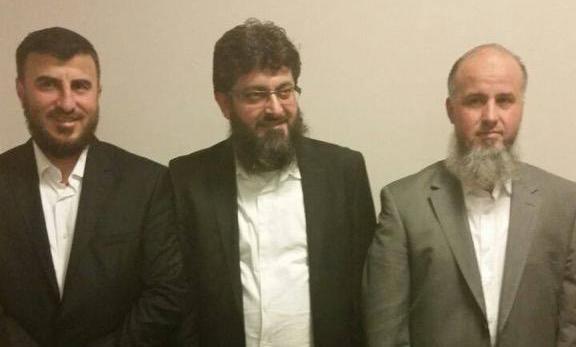
Turkey continue hosting leaders of the terrorist groups in Syria. Leaders of Ahrar Al-Sham, Shukur’ush Sham, Jaish Al-Islam have met in Turkey.

Turkey continue hosting leaders of the terrorist groups in Syria. Leaders of Ahrar Al-Sham, Shukur’ush Sham, Jaish Al-Islam have met in Turkey.